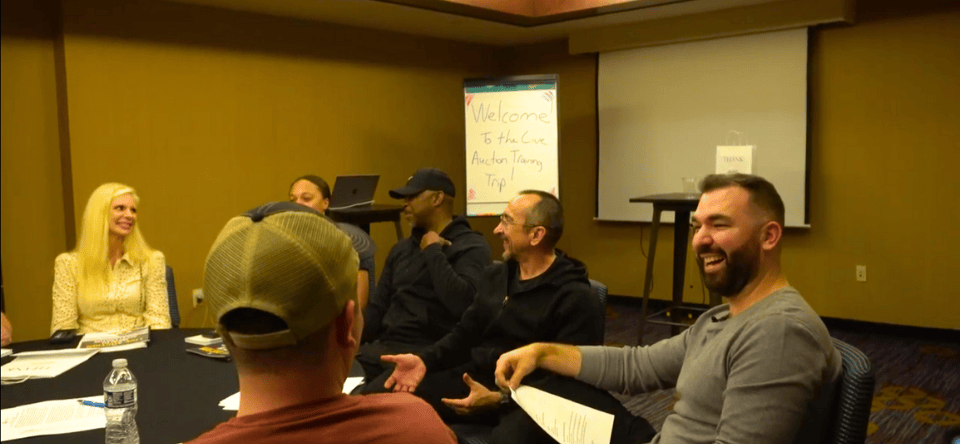Last Updated on September 8, 2025
Table of contents
One of the biggest blunders I see Tax Deed investors make is jumping into a purchase without a solid plan for what comes next. This single oversight can turn a promising investment into a financial headache.
So, what do I mean by “planning for the purchase”? Watch this video to find out.
Three‑Step System for Real‑Estate Exit Plans: Tax Deed Exit Strategies
Buying tax lien and tax deed property can be a good way to build wealth. But you must do it the right way. Many new investors pay too much at auctions because they do not think about how they will make money later. We have seen people pay full market price at auctions. When you pay the same price you could pay on the open market, there is no room for profit. The problem is not the idea of tax lien and tax deed investing; the problem is a lack of planning. You need to know your exit plan before you place a bid.
Smart Tax Deed Exit Strategies help you avoid these mistakes. These strategies are simple plans that tell you how you will turn a tax deed or lien into profit. Having a plan before you buy makes it easier to know how much you can spend and what to do next.
This is a simple three‑step system to help you make an exit plan. The goal is to buy only properties that match your goals and avoid the “it doesn’t work” complaint that happens when investors are not prepared. Follow these steps and you can turn tax liens and deeds into profits, even if you are new to real estate.
Step 1 – Decide How You Will Profit
Before you buy, decide how you will make money from the property. Hahn suggests asking yourself one basic question: How will I profit? Here are the four exit options you can use:
- Flip it: buy the property, fix it up, and sell it quickly to another buyer.
- Rent it: keep the property and earn money from monthly rent.
- Wholesale it: sell the contract or property right away to another investor.
- Hold it: keep the property for a long time and hope it rises in value.
Choosing your exit plan early helps you decide how much you can pay. If you pay too much at auction, you may wipe out your profit. Make sure the plan fits your money, time and skills.
Matching the tax deed exit strategies to your goal
People invest for different reasons. Some want quick cash, others want steady income, and some want long‑term growth. Think about how much cash you have, how much risk you can take and how much time you have to work on the property. This table sums up the good points and warnings for each exit:
| Exit | Goal | Good points | Warnings |
| Flip | Quick cash | Fast profit; you do not keep the property | Repairs needed; market must allow quick sale |
| Rent | Regular income | Steady cash flow | You must manage tenants and repairs |
| Wholesale | Immediate cash | No repairs; quick turnover | Lower profit per deal; need a buyer list |
| Hold | Long‑term growth | Property may rise in value | You must pay taxes, insurance and upkeep |
Use this table as a guide. If you are not sure which exit suits you, talk to more experienced investors. You should find buyers before you bid if you plan to wholesale, and run the numbers if you plan to rent.
Step 2 – Check Every Detail
After you pick an exit plan, you must examine the property carefully. Know the state of the property, the legal issues and the market value. Bidding without preparation can cause problems.
Follow this checklist:
- Check ownership and taxes.
Make sure the tax deed or lien is valid. Look for other liens that could affect you.
- Look at the property.
Drive by or hire someone to check its condition. Get repair estimates.
- Check recent sales.
Compare the property to similar homes that sold recently. This tells you the true market value.
- Count all costs.
Include the purchase price, back taxes, repairs, closing fees and holding costs like insurance and utilities.
- Test your numbers.
Compare your total costs to the price you expect to get from your exit plan. Make sure you can still make a profit.
Tip: Try to pay less than the full market price so your exit plan leaves room for profit. If the numbers do not look good, don’t bid. There will be other properties.
Step 3 – Carry Out Your Plan
After you buy the property, act on your plan. Work quickly so you do not lose time or money. Stay in contact with contractors, renters, buyers or agents and watch your costs.
Here are common actions:
- If flipping: start repairs right away. Ask an agent for a market analysis and list the property as soon as it is ready. Price it to sell.
- If renting: advertise for tenants, check their backgrounds and have leases ready. Save money for repairs and empty periods.
- If wholesaling: call or email your buyer list as soon as you have the contract. Give clear details and a closing date. Assign the contract or do a double closing.
- If holding: make sure you have long‑term financing or cash to pay taxes, insurance and maintenance. Watch the market for a good time to sell.
Avoid blaming the strategy
Many investors who skip planning blame the strategy when it fails. If your first deal goes badly, review your plan and execution. Tax deed and tax lien investing work when you use a careful process.
Extra Tips for Tax Deed Exit Plan
- Keep learning. Hahn’s Tax Lien School has been teaching investors for over 22 years. Learning from others can save you time and money.
- Build a team. Get to know agents, contractors, title companies and other investors. They can share deals and advice.
- Stick to your budget. Do not get caught up in bidding wars. Set a maximum bid based on your exit plan and do not go over it.
- Watch the market. Property values and rents differ by area. Adjust your plan if the local market changes.
Frequently Asked Questions (FAQ)
An exit plan is how you will turn a property into profit. The main options are flipping, renting, wholesaling and holding. When you choose an exit before you buy, you know how much you can pay and still make money.
Auctions often attract people who pay too much. Without a plan, you may pay full price and lose money. A clear exit plan helps you bid wisely.
Think about your cash, time and goals. Flipping gives fast profit but needs repairs and active work. Renting gives a steady income but requires long‑term care and risk of vacancies. Use the table above and run the numbers.
In some places, owners can repay taxes before the sale is complete. If that happens, you get your money back plus interest. Check the rules in your state and include this in your plan.
You can start tax lien and tax deed investing with smaller amounts, especially if you wholesale or partner with someone. But you should have enough money for the purchase, research and surprise costs. Learn first and start small.
Final Thoughts
A good exit plan makes tax deed and tax lien deals more predictable. This three-step system is the heart of smart Tax Deed Exit Strategies. Decide how you will profit before you bid, check every detail and carry out your plan carefully. This helps you avoid the common mistakes that make new investors think the strategy does not work. Whether you choose to flip, rent, wholesale or hold, following this three‑step system will give you confidence and a better chance of success.
Let’s Change Your Approach
Take the time to analyze every property and think through your exit strategy before raising your bidder paddle. Trust me, this one step can save you from unnecessary frustration and ensure every purchase aligns with your goals.
Don’t let that be you.
Let’s change the way you invest,
Dustin
PS: Are you guilty of winging it at auctions? It’s never too late to improve. Watch the video above and let’s start crafting your success.









